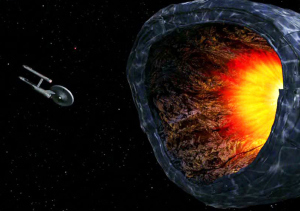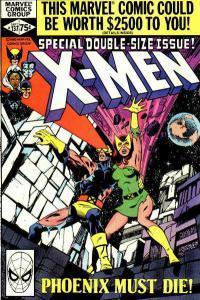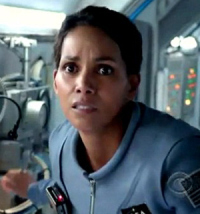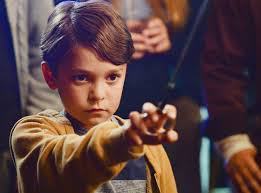Steven Lyle Jordan's Blog, page 39
October 8, 2014
Are We Overthinking the Dangers of Artificial Intelligence?
 In this IO9 article, George Dvorsky talks to SF author David Brin about our society’s inherent over-reaction to and fear of technology. His comments parallel recent articles and press releases of Project Hieroglyph, in promoting a positive outlook in science fiction, and he sums up the biggest problem here:
In this IO9 article, George Dvorsky talks to SF author David Brin about our society’s inherent over-reaction to and fear of technology. His comments parallel recent articles and press releases of Project Hieroglyph, in promoting a positive outlook in science fiction, and he sums up the biggest problem here:
The problem with Hollywood, and cable news and yes, much written sci fi, as well, is that the very notion of adult process is anathema! it is seen as a killer of what Hollywood needs most… drama! Fast-paced peril and pure heroes opposing pure evil!
He also calls out one of my old favorite authors, Michael Crichton, for building his reputation on stories where basically the purity of science and technology was corrupted by a few people ignoring accepted safeguards, or working in secret with some hidden agenda, and thereby creating deadly nanotechnology or dinosaurs running amok.
My take: David Brin Johnson is right! (Hurerrer!) It’s good to hear a bit of common sense applied to technological development, and the fears largely caused not by the technology, but by our own lack of care.


October 7, 2014
Mark Altman wants to turn Star Trek into the next Marvel movie universe. Good luck with that.
 Everyone in the entertainment industry is so fascinated by Marvel’s ability to churn out a series of excellent and popular interconnected movies that they are all seeking ways to duplicate Marvel’s success with other franchises. Now Mark Altman has come forward with a pitch to do the same with Paramount’s sci-fi vehicle, Star Trek.
Everyone in the entertainment industry is so fascinated by Marvel’s ability to churn out a series of excellent and popular interconnected movies that they are all seeking ways to duplicate Marvel’s success with other franchises. Now Mark Altman has come forward with a pitch to do the same with Paramount’s sci-fi vehicle, Star Trek.
So much optimistic dreaming for such an optimistic series… but it all comes down to a pessimistic, purely profit-driven entity which demonstrably couldn’t care less about franchise quality: Paramount. Expecting them to step up and do the right thing by properly handling this franchise is a lot like expecting GM to start producing nothing but electric vehicles, or McDonalds to replace its menu with bowls of granola.
Paramount has already gone through this… when the original Star Wars came out, and wowed the entertainment world with its inventive cross-promotion and heavy merchandising engine. At the time, Wars was the incredible media juggernaut to emulate. And when someone at Paramount asked, “What can we do to get in on that bandwagon?” somebody reminded them that they had their own science fiction series from the sixties… one that had a ravenous fan base clamoring for more material… a built-in audience. Thus, Star Trek was greenlit for the motion picture treatment.
But Paramount demonstrated back then that they didn’t know how to approach the major cross-promotion bit, and were too risk-averse to give the production what it needed to be a great motion picture. Yes, they made money, but not nearly what Lucas had pulled out of Star Wars.
So they decided to try again for gold, but by hiring a TV director who didn’t know Star Trek, and trying to redesign the production to have less substance, and more show. This time, they made a bit more money, which convinced Paramount that they had their formula.
Paramount proceeded to do then pretty much what Altman recommends they do now, creating multiple TV shows and movies, with a bit of tie-in to each other. But their skewed formula was only good for spectacle… which was fine for any science fiction show except smarter-than-most-SF, forward-thinking, optimistic Star Trek. The last productions of that era, Star Trek: Enterprise and Star Trek: Nemesis, clearly suffered and brought a temporary end to the big screen and TV franchises.
Now, with two reasonably successful recent Star Trek movies, Paramount believes it’s found its formula… again. Unfortunately, the movies are in fact nothing like Star Trek; they are something else. Something flashy. Something loud. Something with a few iconic caricatures of itself. The Jesus Christ, Superstar of science fiction. They are doing everything they can to make Star Trek look like all the other science fiction material out there… exactly the last thing you want to do with a franchise that is already iconic.
I just cannot see Paramount doing justice to this venerable franchise, as it’s demonstrated time and again that it’s never done justice to it. Unless Paramount wants to hand Star Trek over to someone else, it might as well let it die an honorable death.
Which is why I’ve argued that maybe we need a new franchise for the 21st century; something that understands Star Trek‘s positive view of the future, but with a more up-to-date approach. As nice as all Altman’s talk sounds, it may just be beating a dead tribble.


October 6, 2014
Project Hieroglyph: Promoting that which… actually, already exists
 The Arizona State University Center for Science & the Imagination has recently initiated a new program called Project Hieroglyph. Supported by authors like Neal Stephenson, Elizabeth Bear, Kim Stanley Robinson, Junot Díaz, Samuel R. Delany and many others, Hieroglyph seeks to turn the present tide of science fiction away from negative-future stories, and towards a more positive future.
The Arizona State University Center for Science & the Imagination has recently initiated a new program called Project Hieroglyph. Supported by authors like Neal Stephenson, Elizabeth Bear, Kim Stanley Robinson, Junot Díaz, Samuel R. Delany and many others, Hieroglyph seeks to turn the present tide of science fiction away from negative-future stories, and towards a more positive future.
I applaud their efforts… at the same time that I point out that some of us authors never stopped writing positive futurist and science fiction in the first place.
The big concern of the Hieroglyph members is that science fiction has always driven imagination and innovation in this world; and as SF has transited to being dominated by zombies, evil aliens and totalitarian regimes bent on breaking our spirits and stealing our lives, innovation in the world has duly suffered. From a recent article:
Sci-fi writer Neal Stephenson is worried about America. “We have lost our ability to get things done,” he wrote in 2011, in a piece for the World Policy Institute. “We’re suffering from a kind of ‘innovation starvation.’ ” And part of the problem, he wrote, is science fiction. Where science fiction authors once dreamt of epic steps forward for humanity, now, “the techno-optimism of the Golden Age of SF has given way to fiction written in a generally darker, more skeptical and ambiguous tone.”
I question this point, because of the simple fact that Neal Stephenson doesn’t speak for all the SF authors out there. He speaks only for those who are popular in the industry right now, those whose books are on the tops of the shelves, those whose stories are getting made into movies and television shows (including his own). And those are actually a small percentage of the authors out there. Newsflash: Authors are not all writing about zombies and dystopias; but most of you guys at the top of the food chain are.
Also, publishers have a lion’s share of the blame here. Yes, a lot of dystopian fiction is being produced; but if publishers weren’t actively choosing the writers of dystopian fiction and publishing their work, we wouldn’t be seeing “so much dystopian fiction.” Publishers are choosing DF because they believe it will sell (and make them money). So, instead of tasking authors with changing, maybe Stephenson needs to be tasking publishers to look again at the stable of authors out there, and start cultivating those with a positive view.
I speak as one of those authors who prefers, enjoys, and exclusively writes, positive futurist and science fiction. That’s because, like Stephenson, I see that the world is not right; and my writing is designed to show the world a better way for us all to live. I see solutions to our problems, and ways we can reach those solutions besides keeping the problems at bay with violence and hatred. I see a positive future, within our reach right now. And all I’ve ever wanted was the chance at reaching the mass audience that Stephenson has, so people could see the positive quality of my writing.
You may want to check out, and possibly join, Project Hieroglyph (I’m considering it myself). But don’t think that science fiction has lost the ability to foster positive actions and innovation. It has always had that ability; it was only hidden behind the shadow of profitable zombies.


October 5, 2014
The ulterior motive
 I enjoy writing about and discussing existing and potential science and technology, and the amazing possibilities for our future. It’s fun discussing science fiction movies and TV shows, and debating what we’d like to see in SF entertainment.
I enjoy writing about and discussing existing and potential science and technology, and the amazing possibilities for our future. It’s fun discussing science fiction movies and TV shows, and debating what we’d like to see in SF entertainment.
But I must confess that I do have an ulterior motive for discussing these things on my blog, posting links to it on Facebook and Twitter and mentioning it on sites like Tor and IO9: It’s because I want people who believe I know something about science, futurism and science fiction to come here and discover that I’ve written my own science fiction and futurist novels. And I want those people, having discovered my books, to buy them.
There are some excellent independent authors out there: Authors who, for lack of money, connections or any other type of promotional savvy, get very little notice or renown for their work; who fight for every sale and struggle to get readers to spread their good work; and who may collect in two months enough money from book sales to take themselves and a significant other out to lunch. At Panera Bread. Without drinks.
We struggle because of an existing publishing system that works hard to convince the public that independent authors aren’t worth their weight in spit, while only the publishers’ content is worth anything.
So we do what we can to be heard and discovered, and hope our readers will reciprocate by buying our books… and if they like them, telling others about us and recommending our work to be checked out.
This is what the Internet era is supposed to be about: Networks of individuals, communicating and helping each other beyond the staid limits of corporate culture and mass commercialism. This is how ebooks were invented, creating new products custom-made for digital communications and worldwide access. This is why I started writing, in order to entertain people far and wide, unfettered by national boundaries or physical limits.
And so here I am, hat in hand, with a simple message: I’m so glad you found your way here; and now that you are here, I hope you’ll reward my efforts by checking out my books, buying one or some of them, and telling other like-minded people as yourself about me.
And if you happen to have connections somewhere, such as with a publicist, or a website that likes to write about or interview authors, I implore you to pass the word to them as well. The more, the merrier.
And most importantly, I hope you enjoy being entertained—not just informed—by me.


October 2, 2014
100 best Star Trek episodes, ranked
 IO9 recently asked its readers for their contributions to the list of best 100 episodes of the Star Trek television franchise (the Original Series, The Next Generation, Deep Space Nine, Voyager, Enterprise and the Animated Series). I contributed to this list, and both of my suggestions (Voyager’s Memorial and the Original Series’ The Doomsday Machine) made the list.
IO9 recently asked its readers for their contributions to the list of best 100 episodes of the Star Trek television franchise (the Original Series, The Next Generation, Deep Space Nine, Voyager, Enterprise and the Animated Series). I contributed to this list, and both of my suggestions (Voyager’s Memorial and the Original Series’ The Doomsday Machine) made the list.
Shoulda been higher ranked, though. Just sayin’.


Security: Encryption, A.I. and drones (Oh my!)
 Personal security has taken a number of recent hits, most notably with the reports of recent hacking into the databases of Target, Home Depot and other national retailers. Financial institutions are finally concluding that the U.S. needs to start using chip-embedded credit cards to better protect their funds and identities.
Personal security has taken a number of recent hits, most notably with the reports of recent hacking into the databases of Target, Home Depot and other national retailers. Financial institutions are finally concluding that the U.S. needs to start using chip-embedded credit cards to better protect their funds and identities.
On the heels of that, the iPhone 6 has been released with an encryption system that (supposedly) no government or agency can break, keeping anything stored therein private from prying eyes. On one hand, law enforcement agencies are complaining that this will only make their jobs more difficult. On the other, agencies are realizing this makes their operatives’ data better protected. And, of course, private individuals like the idea of being able to secure all of their data, allowing them to, as law enforcement puts it, “place themselves beyond the law.”
But as secrets become easier to keep, we run the risk of ne’er-do-wells attacking us more often, targeting our institutions, our money, and even our lives, using the same security measures we rely on. Does my need for privacy include allowing a terrorist an easier time destroying my plane? Is the collection of internet porn on my cellphone so important that we should also allow foreign agents to store their collection of bomb making manuals and list of suppliers on their cellphones? Do we have to allow people to keep whatever secrets they have, only to examine them within an inch of their lives every time they approach a public place?
 The types of security checkpoints we Americans routinely see at public events are already considered by us as “invasive,” “annoying” and “inconvenient”… yet these minimal steps do virtually nothing to prevent those serious enough to smuggle contraband into a concert, or a home-made bomb into a convention center, from doing so if they really wanted to. In short, public security is but a panacea, allowing the public to fool itself into thinking it is safe.
The types of security checkpoints we Americans routinely see at public events are already considered by us as “invasive,” “annoying” and “inconvenient”… yet these minimal steps do virtually nothing to prevent those serious enough to smuggle contraband into a concert, or a home-made bomb into a convention center, from doing so if they really wanted to. In short, public security is but a panacea, allowing the public to fool itself into thinking it is safe.
So, are we destined to continue this blindfolded dance, until the day someone sets off a large explosive at a Mets game… or successfully sets off a shoe bomb on the next plane to Houston? Or the next time someone walks into a school, virtually unchallenged, and empties a few hundred rounds of ammo into our children?
And on the day, if it comes, when we say “enough is enough”… what will that mean? Will the entrance to every public space eventually look like an airlock with an MRI? Will we have police with bomb-sniffing dogs walking down every street? Will all of our phones have back-doors allowing the authorities to rifle our files at will?
Okay: All of the questions I’ve just posed have been posed before. They demand answers, either pro or con, based on our present understanding of security and security technology. But our present level and understanding of security is based on 20th century technology and practices. And as the last sentence implies, we should be looking for 21st century answers to these questions.
There are five areas of technological improvement that are poised to apply to modern security systems. The sooner we deploy them, the better off all of us will be:
 Deep Biometrics. Forget fingerprints and eyeball scans, and other easily-spoofed surface ID points. Scanners are now able to penetrate the human body and take 3D pictures, not only identifying patterns of veins and capillaries, for example, but scanning for motion and heat signatures to confirm that it is scanning living tissue. Anyone who saw I, Robot saw the use of deep palm-scans in action. Deep biometric scanning will provide unalterable, unspoofable ID for the 21st century.
Deep Biometrics. Forget fingerprints and eyeball scans, and other easily-spoofed surface ID points. Scanners are now able to penetrate the human body and take 3D pictures, not only identifying patterns of veins and capillaries, for example, but scanning for motion and heat signatures to confirm that it is scanning living tissue. Anyone who saw I, Robot saw the use of deep palm-scans in action. Deep biometric scanning will provide unalterable, unspoofable ID for the 21st century.Improved Scanning Technology. Scanning companies are constantly developing and improving systems designed to penetrate barriers and detect illicit objects and materials in realtime. One of the most promising is a revised form of radar, using a finer radio pulse than is currently standard. This micro radio pulse can better see through objects and identify specific elements, shapes and compound collections. Already being put to use in military applications, micro-pulse radar will soon be available to deploy in any public space. In addition, applying more comprehensive filters to standard cameras, allowing them to see in a greater range of the electromagnetic spectrum, will permit monitors to detect threats more effectively and provide earlier warning.
Drones. Drones are, at the moment, only known for being deployed at terrorists or potentially delivering pizza, beer or boxes from Amazon. In fact, this early application of drones has led to their incredibly bad rep with the public. But drones, equipped with quality monitoring technology and non-lethal defensive capabilities, could become welcoming eyes in the sky, monitoring public spaces for potential criminal activity, taking early action to identify and track individuals after a crime, and even assisting in stopping them. Applying drones to public space crime prevention would go a long way towards improving their rep domestically.
Quantum Encryption. Scientists are developing encryption systems based around quantum-based random generation of massive numbers that can be easily decrypted with the right key, but virtually impossible to crack without it. These will provide a level of protection on encrypted systems that is a few orders of magnitude above what we have now.
 Artificial Intelligence. Believe it or not, intelligent machines will be the solution to everyone’s Big Brother concerns regarding who to let see our data. The current concern is that, if people are tasked with reviewing private data, those same people are quite obviously seeing that data, effectively compromising personal privacy. But advanced A.I. systems can be trained to review private data, recognize threats, and discard all other data deemed safe before any living person sees it. No human being is seeing your private stash of nude selfies or furries literature, or listening to your torrid affair over the phone—and no computer would care about such things—so your privacy is maintained. (This is the premise of the Machine featured in the TV series
Person of Interest
.)
Artificial Intelligence. Believe it or not, intelligent machines will be the solution to everyone’s Big Brother concerns regarding who to let see our data. The current concern is that, if people are tasked with reviewing private data, those same people are quite obviously seeing that data, effectively compromising personal privacy. But advanced A.I. systems can be trained to review private data, recognize threats, and discard all other data deemed safe before any living person sees it. No human being is seeing your private stash of nude selfies or furries literature, or listening to your torrid affair over the phone—and no computer would care about such things—so your privacy is maintained. (This is the premise of the Machine featured in the TV series
Person of Interest
.)These are the tools of our future security; and number five stands to be the biggest game-changer, effectively removing most of the privacy concerns that the public has over allowing access to their data. In my novel Sarcology, lack of an A.I. capable of reviewing and evaluating private data leads to a world of human-monitored security systems with less actual privacy, alongside decidedly low-security city zones where the desire for privacy forces citizens to give up security. We may not look forward to a high-surveillance future, but if we have to have one, at least an A.I.-based system that can review our data and provide security without compromising our personal privacy would clearly be preferable.
It goes without saying, of course, that any of these systems have the potential to be compromised by mis-handling. We can only make ourselves secure, and feel secure, if we undertake these steps carefully and properly, with appropriate diligence and overseeing of the process to ensure proper compliance with the spirit of the law. Any compromise to any part of these systems will leave us no better off than we are at this moment; in other words, either we do it right, or there’s no point to doing it at all.
I’m honestly curious: Would these measures work for you? Why or why not? What do you consider an acceptable level of security and safety?


September 30, 2014
The Dangers of Franchise Longevity

Thanks to franchise longevity… she didn’t die, of course. Phoenix was worth so much more alive.
In the article The Dangers of Franchise Longevity, IO9 contributor lightninglouie examines the trend for popular series, for example the Simpsons and the X-Men, to eventually lose the unique quality that made them special and popular and end up as stereotypical as the rest of the media morass in their genre.
“There is a big danger associated with longevity, and it’s not what you’d think. Often you hear about creators losing sight of what the franchise was supposed to be about and going off on a bunch of pointless tangents. But I don’t think that’s the real risk at all. The big concern is that the people who are in charge of the thing will turn it into what they thought it was supposed to be all along.”
LL singles out other series falling into this, but I suppose the one that stings the most, to me, is Star Trek, going from its origins as a pseudo-intelligent study of the human condition and optimism for the future, into a senseless space combat franchise full of 50-year-old sci-fi gag tropes. Read the article.


September 29, 2014
Drones are f**king terrifying
September 27, 2014
Extant: Just shy of working out

Halle Berry in Extant (CBS)
Extant, the Halle Berry SF vehicle that tried to impress us this summer, turned out to be one of those cases of having all the right elements… and somehow just not using them right.
Part of me is glad we got it… the part that recognizes an attempt at serious science fiction television for what it is, that appreciates spending enough money to turn in good special effects and bring in actors who can act, that appreciates television producers willing to look further than the last successful movie waiting to be remade.
Nonetheless, I’m sorry it tripped over its own feet and did a header in our living rooms.
I can’t fault the premise about mind-influencing alien spores trying to reach Earth. I’ve heard much worse. I thought the series did a great job with its technology of just a few years ahead of today (heck, I’d be an incredible hypocrite if I criticized technology so very much like the tech I’ve described in Sarcology and Chasing the Light). And I thought the series had a good balance of characters, played very effectively by the actors.
All of my criticism, therefore, goes into the story. It may have been a team of sophomore writers given this project; or maybe the original story was sub-par, and the writers weren’t given enough time to clean it up. Or maybe the producers wouldn’t allow it, meddling with the writers and the story until it came out the hash that it did. I don’t know, I wasn’t there (though, I suppose, someone will tell us eventually).
All I do know is that we were presented with characters whose actions and motivations were highly questionable, situations that bordered on sitcom-style improbable, dialogue that was occasionally painful, thoroughly wasted SF elements, and a non-ending that was clearly intended to be the beginning of a new series about astronaut Molly chasing a shape-shifting alien around the country, aided by her son the robot, living his life from within the inter-tubes.
Experts always warn new writers against coming up with a cool “what if?” concept, developing your characters and settings to the limit, then not putting enough effort into the story itself. In science fiction, the temptation (and the sad result) is even more significant. I’ve got a number of “what if?” ideas that I know are completely useless until I find a story to pit them against. And until I have that story, I won’t start on it. Extant feels like exactly that: A great “What if?” concept that wasn’t actually finished; and at the end, it looked it.
Without doing a complete play-by-play of the miniseries, I’m just going to point out the parts that bugged me the most:

And they used to kid Martin Landau for being expressionless… this is Halle Berry’s single, standard Extant look.
Molly Woods, right off. Here’s a trained astronaut and scientist who is first forced into a hallucination of her dead lover, destroys the evidence of said encounter and doesn’t report it (despite the obvious fact that there might have been a station malfunction that caused her hallucination and needs to be repaired), returns from a solo mission to be told she’s pregnant (despite being infertile), and even after she confirms that the thing inside her is alien and willing to kill, she still acts like this product of an alien rape is a legitimate human child deserving of her love and protection. I would’ve been: “Thank GODD you got that thing out of me. Now I can get busy suing the entire U.S. government out of its socks for knowingly putting me in the position of being raped by an alien in the first place.” And by the way, if you’re going to hire one of the most beautiful actresses in the country for your show’s lead, maybe you don’t want her spending 90% of her time onscreen with that deer-in-the-headlights expression.
The mission. I’m sorry, but there is simply no way in the world that it makes sense to send an astronaut into “deep space”, the most dangerous environment there is, on a solo mission. I don’t care how good of a conversationalist the computer program BEN is; the chance of a disaster happening because there is only one set of hands up there is downright guaranteed. And tending plants? You can do plant tests in low-Earth orbit… fine, go a little higher to get outside of the Val Allen Belt. (Then it turned out the Seraphim wasn’t that deep at all, but could be returned to Earth on maneuvering thrusters. Make up your minds.)
The IASA. An organization of total incompetents. They build space stations that allow astronauts to manually delete on-board surveillance footage that they cannot recover. They actually don’t know why it makes more sense to send 2-3 astronauts on a mission, to work in shifts, back each other up and render assistance when needed (like when aliens show up to rape them). One of their chief security people is a drug addict. Their ground security is lax enough to let a famous man, a late astronaut who is supposed to be dead, waltz right in with a stolen set of fingerprints (read my post on biometric security some time). They don’t know how to secure a lab designed to study life forms of possible alien origin. And they send lone individuals into space on big shuttles designed to hold multiple astronauts and cargo… waste resources much?
Sparks. The IASA head watched his daughter die in space, then sets in motion a plan to get that daughter-killing alien to Earth, riding in Molly’s uterus. He has been led around by hallucinations of his dead daughter… he knows she isn’t real, because she appears as a child to him… and he is actually okay with that. He recruits his ex-wife to help him, she sees the child-version of her dead daughter… and she is actually okay with that.
John Woods. Brilliant robotics engineer and a master of disaster in relationships. He doesn’t know how to reassure or support his wife. He snaps at his assistant for being over-protective of Ethan, the robot boy he’s become even more overprotective of. When he talks to Ethan, he tries to talk to him as if Ethan is a human boy… but every time, he uses words that make it painfully clear (to Ethan and to the viewer) that he’s a toaster. This guy had zero chemistry with anyone else on the show. I refuse to believe that anyone as socially inept as this guy would’ve landed Molly, gotten a grant to build his robot, and be allowed to take it home and call it “son.”
Hideki Yasumoto. He funded and assisted Sparks in his efforts to secure the alien, because he once touched remnants of a meteor that extended his life by decades. No relation to the spores, by the way. Once this fact is revealed, Hideki and his backstory vanish into “What the hell was that?” TV limbo. Ethan. The modern Pinocchio that you’re convinced must be a major part of this plot… are told as much in every episode opening voiceover… only to find, at the end, that he blew up and ended up in the web. I emphasize: He is never. Critical. To this story. An adopted child would’ve worked as well. It would’ve allowed them to ditch the stupid anti-robot terrorist side-story that made me cringe when I watched any part of it. A copy of BEN would have sufficed for the ubiquitous net assistant set to follow Molly around. He’s a pointless distraction to the show’s premise and should have been left on the concept room floor.
Ethan. The modern Pinocchio that you’re convinced must be a major part of this plot… are told as much in every episode opening voiceover… only to find, at the end, that he blew up and ended up in the web. I emphasize: He is never. Critical. To this story. An adopted child would’ve worked as well. It would’ve allowed them to ditch the stupid anti-robot terrorist side-story that made me cringe when I watched any part of it. A copy of BEN would have sufficed for the ubiquitous net assistant set to follow Molly around. He’s a pointless distraction to the show’s premise and should have been left on the concept room floor.
I could go on (unfortunately), but I’m sure I’ve made my point. Extant was just not ready for prime time, no matter how pretty it (or Halle Berry) looked. Yes, an ongoing series may have closed up some of the plot holes we witnessed; but not most of the things I singled out above. The miniseries won some acclaim when it was released… certainly an indication of how bad a year it’s been for science fiction television and how short people’s memories are (if Person of Interest or Orphan Black had been airing its new season at the same time, I’m convinced Extant would’ve been laughed out of the room).
But, man, it was this close to being good. Next time, give the writers the time they need to do a proper job. Then maybe we’d have been watching that series all winter…
On the other hand… we have seen that series. It was called Starman. Or was it The Phoenix? The Powers of Matthew Star?
Y’know what? Maybe it’s just as well.
Did you see Extant? What did you think?


September 25, 2014
The biggest hits to global warming
 I was surprised to see the results in this Economist article, The deepest cuts. It provides a handy graph for showing which actions, policies or events have most contributed to the cessation of greenhouse gasses, cutting our impact on the warming of the planet. And the items on the graph, and their impacts, really took me for a loop.
I was surprised to see the results in this Economist article, The deepest cuts. It provides a handy graph for showing which actions, policies or events have most contributed to the cessation of greenhouse gasses, cutting our impact on the warming of the planet. And the items on the graph, and their impacts, really took me for a loop.
I had to look up the first item: The Montreal Protocol is the series of worldwide laws that took chlorofluorocarbons out of our refrigerants… and look at the significance of that one act! The growth of hydro and nuclear power are also massively significant, and both sources of power have room to grow… especially if we can improve our nuclear power plants to thorium-based systems, and add other renewable sources, like wind and solar, to these figures.
Most of the rest of these areas of improvement, while notably small compared to the CFC and power plant numbers, are still significant… especially since we still have a long way to go to mitigate climate damage, and the big items like CFC removal are already done. This graph indicates better than anything else I’ve seen that conversion to more efficient power plants (and the accompanied closing of coal- wood- and oil-burning plants) would go a long way to improving our carbon situation.
I wouldn’t have expected to see China’s one-child policy listed herein, but there’s no doubt that it had a significant impact… a good lesson to any country that lets its population levels get too far out of hand. And it’s good to see that US vehicle emissions numbers are significant, and will hopefully get better as hybrids and electrics become more mainstream.
Overall, this is a great place to start national, regional and local conversations about what can be done to curb global warming. Does this graph, or the article, give you any ideas? Think about sharing them.











